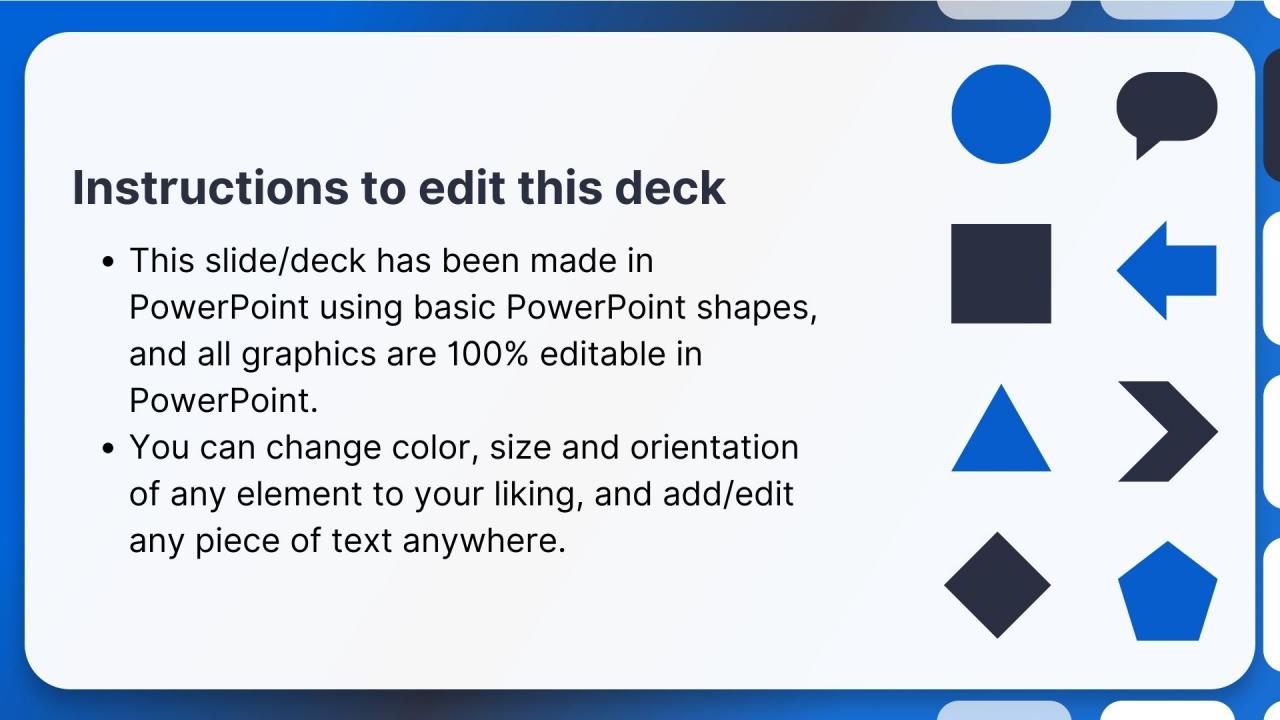How Managers Add To Conflict Training Ppt
These slides, in detail, cover ways in which managers add to workplace conflict, which are micromanagement, poor understanding, vague expectations, and setting poor standards. It also provides information regarding signs to identify such methods to avoid disputes.
You must be logged in to download this presentation.
 Impress your
Impress your audience
Editable
of Time
PowerPoint presentation slides
Presenting How Managers Add to Conflict. Each slide is well crafted and designed by our PowerPoint experts. This PPT presentation is thoroughly researched by the experts, and every slide consists of appropriate content. All slides are customizable. You can add or delete the content as per your need. Not just this, you can also make the required changes in the charts and graphs. Download this professionally designed business presentation, add your content and present it with confidence.
People who downloaded this PowerPoint presentation also viewed the following :
Content of this Powerpoint Presentation
Slide 1
This slide lists signs of micromanagement at the workplace that led to conflict such as over-communication, seeking unnecessary hustle, detailed account for every minute of workday, hovers, does not delegate, and calls constant meetings.
Instructor's Notes:
Signs that a manager is micromanaging at the workplace and adding to conflict are:
Over-Communicates:
- Communication is essential in an organization, but micromanagers do not know when to stop
- These managers over-explain every instruction by detailing every step again and again
- Instead of giving highlights, they explain every piece of information
- Team members cringe upon new notifications from the boss as the managers ask dozens of questions from employees either via person, phone or email
- Most micromanagers intend to be thorough, but this approach often leads to conflict
Demands Continual Hustle:
- Micromanagers do not like employees chatting around and standing in groups
- They optimize every minute and make sure team members stay moving
- They fail to understand that business does not always equal productivity. It is also important for employees to have some free time to be fresh to go again
- Socializing also helps coworkers deepen their bond and trust, which leads to better collaboration and teamwork
Detailed Account for Every Minute of Workday:
- In domains with billable hours, such as the legal field, consulting, and creative industries, it is critical to know details on where employees spend their time and such an approach works; everywhere else it fails
- Micromanagers expect this type of precision no matter what the position is
- They question the exact breakdown of the work-time of employees
Hovers:
- Micromanagers are always around, and they keep monitoring their employees’ activities
- These leaders make other people know of physical presence
Calls Constant Meetings:
- Constant meetings are an obsession with micromanagers
- These managers take a pressing topic to discuss every day
- If an employee fails to join a meeting, the manager will make sure that he/she is interrogated for the absence
Slide 2
This slide lists signs of poor understanding at workplace that could lead to conflict such as use of hazy terms, assigning one task to two people (creating duplicity of work, a major resource wastage), use of language to hide something, rather than bring clarity, making unrealistic promises, and employing military type approach.
Instructor's Notes:
Different sign of poor understanding at work place that led to conflict are:
Use of Hazy Terms:
- In an organization, when the manager says that "This is a priority," it sounds clear but what’s not clear is the description of the priority which could lead to confusion and later to conflict
Assigning one Task to Many People:
- If a work is assigned to more than one person, there are high chances of conflict due to differences in their ideas and execution
Use of Language to Hide, Rather Than Explain:
- If a manager needs an employee who can work overtime, the manager sugarcoats the facts to make that employee understand the concern work as per the need of the hour
Making Unrealistic Promises:
- If a manager sets unrealistic demands from the client, then the reputation of employees working under that manager is at stake
- It is never too late for the employee to course-correct, he must admit this mistake, if made, and not risk the career of his staff
Employing Military Type Approach:
- This technique might work while conveying a message to employees, but if the important part of the instruction is missing, conflict lurks around the corner, as no employee can cover up for a blundering manager forever.
Slide 3
This slide lists ways in which managers set poor standards at work, causing conflict. The major signs of this are being forgetful, holding back critical information, assigning the same task to different employees, over promising, not pitching in during crisis, refusing to admit mistakes, and not listening.
Instructor's Notes:
At the workplace, these are some signs that managers are setting poor standards and causing conflict can lead to conflict are as follows:
Being Forgetful:
- If a manager keeps forgetting what he communicates or what is communicated to him, then it indicates that employees' accomplishments and work done by them are not important
Holding Back Critical Information:
- If the managers do not share critical information with employees, it hinders the progress of both the organization and the employees
Assigning the Same Task to Different Employees:
- If same task is assigned to many employees in an organization, it employees’ morale and damages their confidence
Over-Promising and Under-Delivering:
- Managers with vision and initiative come up with good ideas, but with time, they pay less attention or do not follow-up on their projects, leading to a loss of credibility and trust
Not Pitching in During a Crisis:
- At the time of crisis within the company, managers need to pitch in alongside employees to resolve issues
Refusing to Admit Mistakes:
- In case of a mistake, it is the responsibility of the manager to own their shortcomings and make things better
Not Listening:
- In an organization, the manager has to pay attention to his team-members. He/she has to make sure that there is no multi-tasking when he is communication with them
Slide 4
This slide lists the signs of vague expectations at workplace that could lead to conflict such as poor communication, team conflict, increased stress levels, lack of personal control, and poor performance.
Instructor's Notes:
Different signs of vague expectations at work place that lead to conflict are:
Poor Communication:
- In an organization, unclear expectations lead to problems in communication, with the whom and what emerging as major hurdles in the process difficult with whom to communicate and what to communicate
Team Conflict:
- The managers need to bring employees working on the same project on the same page. They should also ensure their expectations are conveyed to the employees to avoid conflicts and also, the expectations of the managers should be clear to the employees to avoid any conflict
Increased Stress Levels:
- Stress levels increase when work expectations are unclear, and employees don't know if they are doing well or failing in their assigned roles
Lack of Personal Control:
- If the expectations are unclear from the manager’s end, there is little motivation for employees to make decisions and solve problems
Poor Performance:
- When expectations are unclear, team members remain confused on their roles and responsibilities
Slide 5
This slide illustrates statistics on conflict at workplace. It also explains the financial damage every toxic employee causes.
How Managers Add To Conflict Training Ppt with all 21 slides:
Use our How Managers Add To Conflict Training Ppt to effectively help you save your valuable time. They are readymade to fit into any presentation structure.
-
Superb! The innovative and inspiring template designs provide an edge to the presentation.
-
SlideTeam, Please don’t stop sharing discount coupons! I love your occasional discounts and tend to buy your products around that corner.


















































